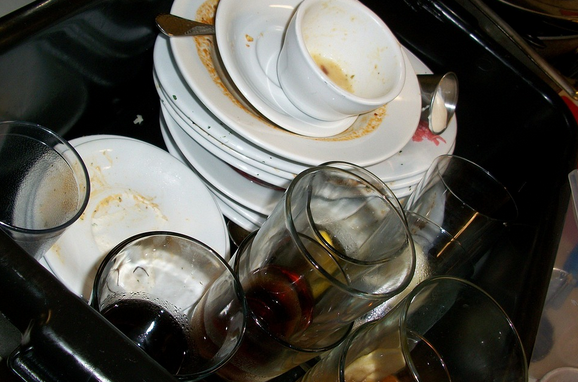
Your Dishes Coming Out Dirty Even After a Full Cycle? Here’s What Happens in Your Dishwasher
Are you tired of pulling grimy dishes out of your dishwasher after a full wash cycle? We all share the same pain when dealing with such a problem. Imagine spending so much money on a dishwasher only to have it leave your dishes looking dirty and unclean. Even if you’ve just brought home a brand-new dishwasher, there are possibilities this problem will punch you in the face.
So, what exactly happens in your dishwasher? Why are your dishes coming out dirty even after a full wash cycle? Is your dishwasher broken or is there a problem with the way you load it? Local specialists in appliance maintenance, fortunately, can help in this moment. From food debris to clogged pipes, there are several reasons why your dishwasher might not be doing its job. Take a look at the details here.
Clogged Spray Arms
First, let’s check your spray arms. These essential components are responsible for distributing water throughout the dishwasher. When they’re blocked, you can kiss spotless plates goodbye. Food particles and mineral deposits often accumulate in these arms over time. A quick inspection can reveal if there are any obstructions hindering their performance. Cleaning them isn’t a difficult task. Simply remove the spray arms according to your manufacturer’s instructions, then rinse them under warm water to dislodge any debris. You might need a toothpick or small brush to clear stubborn clogs further. Once you’ve cleaned them out, reattach the spray arms and run an empty cycle with vinegar added for extra freshness.
Overloaded Slots
Overloading the dishwasher slots is a common mistake many people make. It can seem efficient to cram in every dirty plate and utensil, but this strategy often backfires. When you overcrowd the machine, water cannot circulate freely. This means that some dishes may not get cleaned properly. Those hard-to-reach spots? They might end up grimy after a wash cycle. In addition, overloading puts extra strain on components like spray arms. These crucial parts need room to move and direct water effectively. If they’re blocked or restricted, your dishes won’t come out sparkling. To avoid this issue, load fewer items each time or invest in a smaller load option if available.

Wrong Detergent
Choosing the right detergent for your dishwasher is crucial. Many people assume that all detergents work the same way, but that’s far from true. Using a product not designed for dishwashers can lead to residue buildup on your dishes. Some detergents may create excessive suds, which can interfere with the washing cycle. When this happens, dirt and grime don’t get washed away effectively. Instead of sparkling clean plates, you might find a greasy layer left behind. It’s also important to check if you’re using pods or powder correctly. Not every type suits every machine model. The wrong choice can leave your dishes looking worse than they did before loading them in.
Hard Water Buildup
Hard water can be a sneaky culprit behind dirty dishes. When your water supply has high mineral content, it leaves residues on everything it touches. These minerals accumulate over time, creating a crusty layer inside your dishwasher. This buildup clogs filters and spray arms, reducing their efficiency. As a result, water struggles to reach every dish. You might notice spots or cloudy films on glassware after the wash cycle completes. This is often due to hard water deposits that cling stubbornly despite the rinse cycle. Regular cleaning with vinegar or descaling solutions can help combat this issue.

How to Find the Best Specialists in Appliance Maintenance
Dealing with this problem won’t take that long if you let the right person do the job for you. So, if you’re still dealing with this problem, reach out to the best specialist in appliance maintenance. How? Check online reviews and ratings on platforms with a solid track record of service quality.
